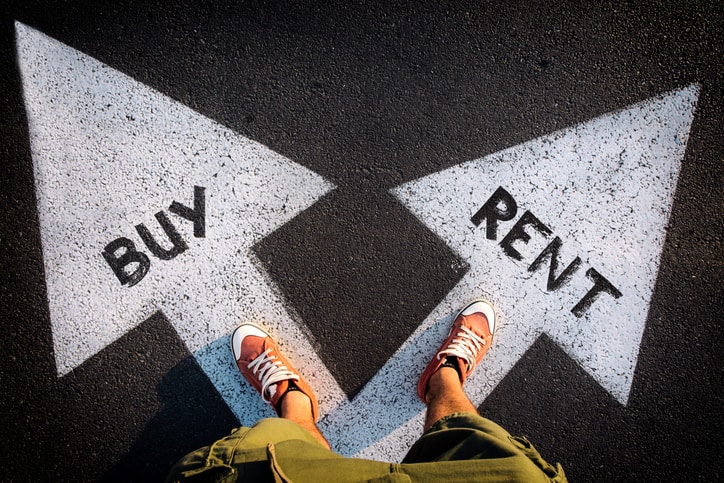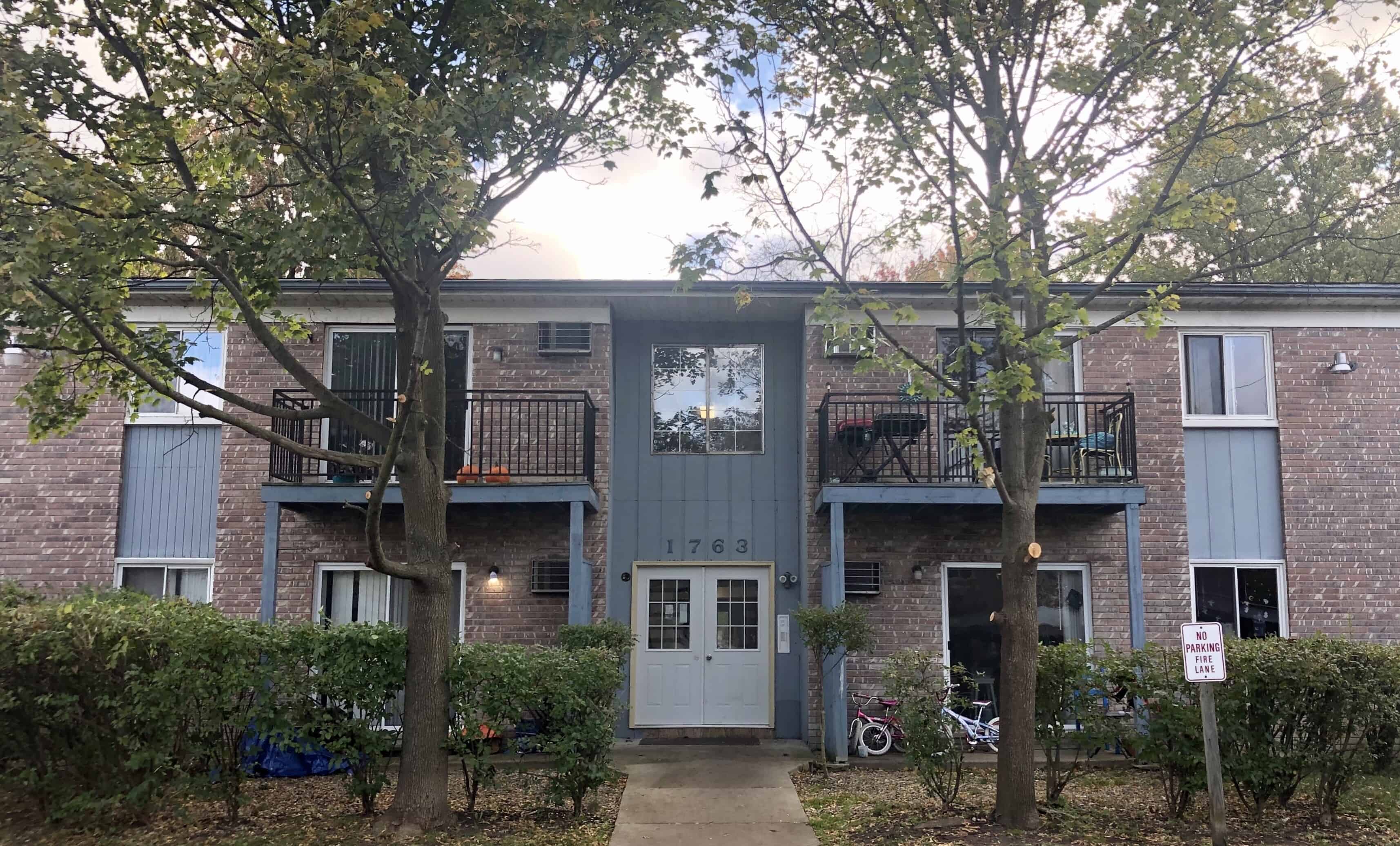Is it better to rent an apartment or buy a house? Are apartments better than houses? Many people find it difficult to give definitive answers to these questions.
Buying a home can be an expensive and time-consuming investment. There are many pros and cons to consider, such as your credit score (to get approved for a mortgage), how long you plan to stay in the home, how much money you can afford for a down payment, among other factors.

With that said, renting can be cheaper than buying, especially if your goal is to occupy the space for a short amount of time, but renting also means that you won’t own the property.
Why You Should Rent an Apartment
There are numerous advantages to renting Keego Harbor apartments. The process of renting an apartment is straightforward and convenient. You can find many properties to rent in your desired location, and the process is quick and easy.
The number of people who rent apartments is constantly increasing. The reason for this is that, aside from the lower cost of renting vs. purchasing, one can move around and explore other regions with greater ease. Renting allows the freedom to live in any city for as long as one would like without being tied to one location due to a mortgage.
Renting an apartment vs. buying a home is one of the most important financial decisions you’ll ever make, so it’s critical to get it right. With that said, if you’re interested in learning more about what renting an apartment may accomplish for you, keep reading.
Little to No Repair or Maintenance Costs
Owning a home is one of the most significant investments you can make, but one of the biggest downsides is the high costs of repair and maintenance.
The average homeowner spends $2,000 every year to keep their house in good condition. This includes major costs, such as repairing appliances, and routine maintenance, like lawn care, gardening, and exterior upkeep.
These costs could be even higher in big cities like San Francisco and New York.
Expenses like these add up quickly, meaning that homeowners will have to spend thousands more over their lifetime than renters.
In apartments, on the other hand, the homeowner covers substantial repair and maintenance expenditures; thus, renters, unlike homeowners, have less costs for the same. This is just the first reason why renting an apartment is better than owning a house.
Less Upfront Costs When Renting an Apartment
Buying a home requires a substantial amount of money upfront. For example, the average down payment on a home is 20% (if you want to avoid private mortgage insurance), and the median list price for a home in the U.S. is $239,000. This means that the average person would need to come up with $47,800 for their down payment.
If you’re thinking about renting an apartment, however, there is no need for a down payment. In most cases, you will need what is a security deposit for an apartment, the first month’s rent, an application fee, a one-time pet charge (if you are a pet owner), and the first month’s pet rent.
In other words, the upfront cost for a rental property will cost far less compared to buying a home because of the higher down payment cost.
Access to Communal Amenities
Renting an apartment within a complex or community has its advantages. Apartments typically have more amenities than a home because they are targeted to the larger population of renters. For example, a renter may be able to take advantage of their building’s fitness center, pool, on-site parking, concierge services, or access to a shuttle.
In addition, renting offers the freedom to access the amenities without the need of maintaining the property.
If homeowners want the same amenities, they will have to invest thousands of dollars in things like a fitness facility and a swimming pool. In addition, the cost of maintenance is something a homeowner would have to come up with themselves.
No Obligation to Pay Property Taxes
When determining whether to lease an apartment or buy a home, the duty of paying property taxes is sometimes disregarded.
Owning your own house has numerous benefits, but it also has various drawbacks. Property taxes can be as much as 2% of your home’s value, which can quickly add up.
With that said, a resident of an apartment is not responsible for property taxes. These tax costs are paid by the landlord, who then typically builds that expense into the rental rate that the tenant pays. So, if you are looking to lease an apartment, there is no reason to be concerned with huge tax bills or tax deductions.
Everyone has different financial circumstances/financial situation, so it won’t make any financial sense to buy a home when you don’t have a stable income. Committing to large fixed monthly payments for a mortgage could be problematic (it’s a long-term commitment).
More Freedom in Terms of Where You Can Live
Renting an apartment gives you the freedom of practically living anywhere. It allows you to live in a new city and explore your surroundings.
If you are looking for a change of pace, renting an apartment is the perfect solution. When you lease, you are not stuck in one place; your next adventure can be as close as a ten-minute drive away.
On the other hand, if you are a homeowner, but you are looking for a change of scenery or need more space and decide it’s time to move on, you may need to sell your home first.
Selling your home usually takes some time to find the right buyer. Many potential obstacles could come up when selling your home. For instance, you may need to lower the price to attract potential buyers if it’s not selling as fast as you need it to.
Furthermore, if you want to sell your house quickly, you will usually have to pay a real estate agent (closing costs associated with this are also high). These reasons make apartment living an attractive alternative because all you need to do is find another apartment in you desired location and move out when your lease is up.
No Need to Worry About the Value of the Property
Purchasing a home is not always a straightforward process; there is a risk that the home value may depreciate over time.
For example, if new houses with superior design are built in your neighborhood, your home may lose value. All that is left for you to do then is upgrade to meet the new standards, which will cost money.
On the other hand, you won’t have to be concerned about the potential of property value depreciation if you lease an apartment.
The Flexibility to Downsize
What happens when the landlord increases your rent and you can’t afford the new rate? You downsize! This way you will be able to pay your bills, live comfortably, and save money from high rent rates all at once.
Living in an apartment gives you the luxury of moving in the quickest amount of time possible. On the other hand, when you have to downsize from a home to an apartment, it can be time-consuming and stressful.
Lower Insurance Cost
Insurance is an important consideration for home buyers and renters (renters insurance) alike. However, a homeowner faces a much larger insurance cost (homeowners insurance) compared to a renter. With that said, a homeowner has significantly higher chances of having a large expense, like replacing their roof, foundation, or cleaning up after a natural disaster.
For the sake of safety, both the renter’s insurance and the homeowner’s insurance policies must be renewed regularly. According to the Insurance Information Institute, renters insurance costs $179 per year, on average, but homeowner’s insurance typically costs around $1,249 per year.
Simply put, tenants pay less for renter’s insurance compared to what most homeowners pay for theirs.
Less Utility Bills
The cost of utility bills that apartment renters pay is generally lower than homeowners. The only stipulation is the renter must be mindful of the amount of electricity and natural gas they use.
If the renter is not mindful of their usage, they can pay higher bills than necessary.
On the other hand, homeowners can only control so much when it comes to the cost of their utility bills, no matter how much they try to reduce their consumption. They have things like security systems, among other energy bills, that the renter often doesn’t have an obligation to pay for every month.
Less Cleaning Space
Cleaning your own home is a big job, and the bigger the living space, the more time and energy it takes. Many homeowners choose to hire cleaning services, which undoubtedly adds to their expenses.
Cleaning services can get costly (adding to monthly payment for housing expenses), and for those living in larger homes, the cost of hiring a cleaning company can quickly add up. So, if you are on a budget, don’t rule out doing your own cleaning.
On the other hand, cleaning an apartment, no matter if it’s 1-bedroom apartments in Keego Harbor, MI or 2-bedroom apartments in Keego Harbor, MI, is a task you can spend very little time each day on, whereas cleaning a home can take hours. Thus, when time is tight, and you have limited resources, it may be better to just have an apartment space to clean.
You Don’t Need a Mortgage
From the approval process to losing the property as collateral, many people have terrible experiences with mortgages. A mortgage is a loan from a bank or credit union with the purpose being to buy a house, or other real estate. The title of the said asset would have a lean on it from the lending financial institution until the loan is paid off in its entirety.
Mortgages are often used because real estate is considered a type of collateral for loans. This may seem great on paper, but that is far from the reality when you consider the interest you end up paying over the life of the loan, and especially what happens when you fall behind a couple of months on your mortgage payments.
Unlike owning a property, renting an apartment does not require a mortgage debt (which means no mortgage interest). All you need to do is cover the upfront costs, which typically includes the first month’s rent, a security deposit, and an application fee.
No Monthly Homeowners Association Fees
The apartment renter doesn’t have the obligation of paying any Homeowners Association fees (HOA Fees). The HOA fees, which are common in condominium buildings or communities with several houses that share amenities, go towards maintaining the common areas used by residents.
In addition, most apartment complexes organize events and give their tenants a chance to enjoy without incurring an extra cost. For example, management sponsored holiday gatherings are common in many apartment communities.
Instead of wasting money on monthly HOA fees, you can use that savings towards your emergency fund.
Take Away: Buying Homes
Buying homes is like trading in the stock market, you need to maintain accurate information if you want to find the right property that will build your home equity over time.
Despite the greater required upfront monies, along with other costs, purchasing a home is an investment that you can put your money into and rent out while you live in an apartment.
A mortgage could be considered good debt or bad debt. This all depends on your repayment plan. So, compare the mortgage rates before signing the dotted lines.
Final Thought
In recent years, the average home values have been on the rise. This can be attributed to inflation and a lack of inventory in certain places, but it’s also due in part to an increase in demand.
With this increase in demand, housing prices/home prices will naturally increase as well. In this hot market, purchasing a home may not be feasible for many people looking to buy a property or build wealth/build equity.
With that said, renting apartments generally offers greater housing options. Also, renters typically do not have the same financial commitment as homeowners, which allows them to move to different locations with ease.









